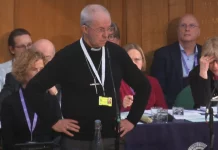In today’s technologically advanced world, we take instant communication for granted. We have the ability to connect with somebody on the other side of the world, using a device no bigger than the palm of our hand. And yet it appears that as a nation we have never found it more difficult to build meaningful connections with those around us.
The UK is in a loneliness epidemic. The ONS found that a shocking one in twenty adults feel lonely often or always, and according to research published in the journal PLOS Medicine, it’s as dangerous as smoking 15 cigarettes a day.
With the fast pace of life and ever-increasing demands upon our time, we are becoming more and more prone to superficial and fleeting connections, when what we really need, more than ever, is true belonging.
Belonging is being seen, heard, and understood.
While loneliness might leave us longing for interaction with others – family, friends, acquaintances – there is solid research which shows that it can cause physical as well as mental harm.
Research from Kings College has found that young people who are often lonely are twice as likely to have mental health problems such as anxiety or depression, and it doesn’t stop there, because a separate study from the Campaign to End Loneliness suggested that loneliness increases the risk of early mortality by 26%.
As this feeling of isolation sweeps our nation, the Church must pay attention. It is estimated that up to 2 million adults across the UK are suffering from loneliness, which means that a huge amount of people are seeking the antidote to this endemic issue.
While loneliness impedes life, belonging supercharges it.
Loneliness holds no regard for age, status, role, or religious belief and Christians aren’t immune. Many Christians are deeply lonely despite their personal relationship with Jesus. Many walking through the doors of a Church will also be lonely and desperately looking for that sense of belonging from the others in the room. Whether it’s a single dad in the toddler group, a young adult on the fringes, a widow in the mid-week drop-in, or a couple who long for the ‘village’ to help them raise their children.
Jesus models how we might respond. He demonstrated his belief in the values of community throughout his life and ministry. He selected twelve disciples not simply to pass on teachings, but to share in his journey, forming a tight-knit community around him. They dined, travelled, learned, and experienced trials together, embodying Jesus’ vision of a faith-based community. His habit of breaking bread with a wide range of individuals – from tax collectors to lepers – shows his disregard for social status or societal norms when it came to inclusivity. These dinners weren’t just meals; they were symbolic events where barriers were broken and community was formed. His parable of the Great Banquet, where a master invites the poor, crippled, and lame to a feast after the rich and privileged decline, echoes this message of inclusivity and community.
I grew up with an open-door policy. My parents placed value on inviting others in. I had foster siblings from the age of two until ten and our Christmas dinners were always about how many we could possibly fit around the table. As a child, it seemed to me like the only way to do life.
So what if our churches placed a culture of belonging and inviting in others higher up their agendas?
Belonging doesn’t have to be complicated, but it requires us to love beyond ourselves.
We need to position ourselves so we’re ready to respond to opportunities for connection. All too often we’re tempted to batten down the hatches and take care of ourselves, and our families. But as Christians, we’re called to spread unconditional love, belonging and acceptance from God and we’re given these gifts to bestow on others.
A culture of belonging requires us to be safely vulnerable, and interruptible, and to widen the circle of our ‘family’. Will we delve beyond the small talk? Will we pause for the person who is about to share, so we don’t miss the opportunity for connection? Will we open the doors of our homes?
If connection stops at the welcome team on a Sunday morning we’re not doing enough. Building a culture of belonging means it should permeate the very fabric of a community, and it shouldn’t rely on one person, team, or day of the week.
If the majority are ready to build deeper relationships, the Church is richer for it and uniquely positioned to model something our society is desperate for.
That is why I’m so excited about The Belonging Course because it provides a beautiful challenge to step into the joy and the ups and downs of widening your circle and finding the antidote to loneliness through your Church.
One of our befrienders from Northern Ireland sent a simple text to the person she was supporting yet it had a profound impact. The text read, ‘It’s cold and windy outside, make sure you wrap up warm’. They responded: ‘No one has ever cared about me enough to suggest I should wrap up warm.’. While belonging goes much deeper than the sending of a text – this story shows how it starts with pausing and enabling someone to feel seen, heard and valued.
For more information go to belongingcourse.uk or get in touch with the Safe Families team at belongingcourse@safefamilies.uk.










